2017-2018 ACBS Board
President:
Giovambattista "Nanni" Presti, M.D., Ph.D., University Kore, Enna (Italy)
President - Elect:
Louise Hayes, Ph.D. (Australia)
Past President:
Daniel "D.J." Moran, Ph.D., MidAmerican Psychological Institute/ Pickslyde Consulting (USA)
Secretary Treasurer:
Andrew Gloster, Ph.D., University of Basel (Switzerland)
Member at Large 1:
Maria Karekla, Ph.D., University of Cyprus (Cyprus)
Member at Large 2 (basic science):
Emily K. Sandoz, Ph.D., University of Louisiana at Lafayette (USA)
Member at Large 3 (basic science):
Amy R. Murrell, Ph.D., University of North Texas (USA)
Member at Large 4:
Jonathan Bricker, Ph.D., Fred Hutchinson Cancer Research Center & University of Washington (USA)
The Bios and Platform statements for the board members are below:
President
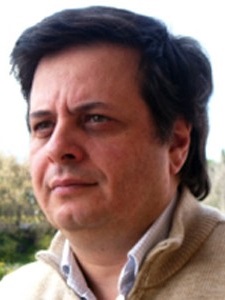 Giovambattista "Nanni" Presti, M.D., Ph.D.
Giovambattista "Nanni" Presti, M.D., Ph.D.
University Kore, Enna (Italy)
Nanni was trained as a Medical Doctor and attended a Clinical School in Psychotherapy as a post-doc, and received his Ph.D. in Behavior Analysis. As Associate Professor at Kore University in Enna, he coordinates the undergrad program in Psychology. Nanni has a broad experience of teaching and living outside Italy and helped establishing as Treasurer the European Association for Behavior Analysis. He founded and co-managed IESCUM, which has fostered the diffusion of CBS in Italy. He deepened my research interests in BA and ABA focusing on the early equivalence studies and then RFT. Alternating clinical and basic science interests, he encountered ACT at the turning of the millennium, after knowing its first steps. Nanni served ACBS co-chairing the meeting in Parma and serving on the Conference Committee for Washington. He has served on the ACBS Board as a member-at-large for the past two years and co-founded the Italian ACBS Chapter.
Statement: I will be honored to continue to bring my national and international experience at the service of ACBS and foster its mission. I would like to see ACBS grow as a strong international contextual behavior association as the house for behaviorally oriented clinicians, educators, social workers, physicians, psychologists, and researchers. ACBS needs to to strengthen this common house of professional and researchers and I envision the need to serve also members beyond the original clinical core that are focused on the application of a CBS to other areas, like education, workplace and health, to mention only a few. As a growing organization I recognize that members have different needs according to their “seniority”, interests, professional role and area of the globe were they live and work. So there is a need to insure that the International members are served and Diversity being cultivated.
President- Elect
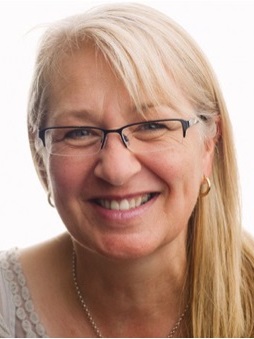 Louise Hayes, Ph.D.
Louise Hayes, Ph.D.
The University of Melbourne (Australia)
Community and connection has become the centre of my work and I will use this focus to benefit ACBS members. I was introduced to ACT in 2003 and became a member of ACBS in 2006. I am a peer reviewed ACT trainer. I run a training business, a private practice, and I am a Senior Fellow with The Centre for Youth Health at The University of Melbourne. My passions lie in my philanthropic work; most recently Mindful Adventures where we provide experiences for professionals, give poor people wages, and raise money to help educate remote children in Nepal. I have held a number of roles within ACBS including: Member-at-Large of the international board, President of the Australian and New Zealand Chapter, committee member for the Training Committee, the Conference Strategy Committee, the Developing Nations Committee, and lastly Program Chair for the Sydney World Conference.
Statement: I would be humbled and honoured to serve as ACBS President. My vision is to focus on evolving a professional society with two key agendas – (1) a continued strong science and research platform that is home to all types of professionals interested in the human condition; and (2) strengthen our membership through inclusiveness, cooperation, and community building. ACBS has seen wonderful growth and I see this as a major challenge for us all – the bigger we get, the easier it is to feel lost. It seems timely to me that evolution science and principles of group selection and cooperation, along with Ostrom’s principals for managing the commons will help us grow the ACBS community we want. I would seek to use our knowledge in these areas to stay connected as a community and work together in our scientific interests, our training and networking, and our SIGs and Chapters.
Past President
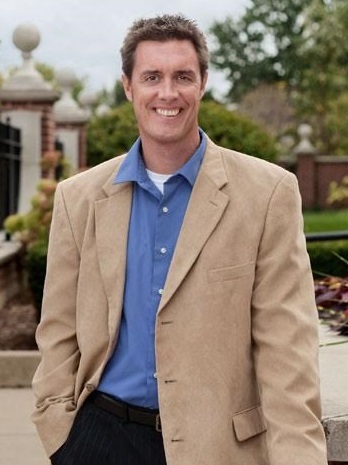 Daniel D.J. Moran, Ph.D.
Daniel D.J. Moran, Ph.D.
MidAmerican Psychological Institute/ Pickslyde Consulting (USA)
Leadership and contextual behavioral science skills supported my career accomplishments, and I will use those skills to benefit ACBS members. As founder of the MidAmerican Psychological Institute and Pickslyde Consulting, I put ACT in practice while achieving prosocial goals. I’ve trained ACT on six continents and aim to continue disseminating CBS to a greater diversity of professionals. As Secretary-Treasurer of ACBS, my actions significantly improved our organization’s finances, leading to substantial benefits for all members. I worked to increase investments in research grants, travel grants, Journal of CBS advancements, staff hiring, and extraordinary conference programs. I review ACBS’s budget every month and know how to offer even more membership benefits. For 21 years, I’ve contributed to developing our community, and the important project I’m leading now is the Investment Committee, through which my personal interaction with financial specialists outside our organization will continue to safeguard ACBS’s long-term economic health.
Statement:I have a genuine vision for continuing to expand the reach of ACBS. During my five years serving on the Board, I’ve worked hard to generate broader diversity in our membership, and a wider range of environments for our scientific applications. I’m very aware of our Membership Survey results and understand what our community wants for the future. I will strengthen the Board’s focus on the Diversity Committee, local chapters, international Training Institutes, the Developing Nations Fund, and our Conference programs. I will continue making participation in ACBS affordable and beneficial for all members. My recent publications focus on ACT for organizations and leadership, and I will apply effective ACT principles while leading the Board. I hope I have earned your trust, not just based on my extensive volunteer service and successful track record on the membership’s behalf, but for the vision I have for our lovely organization.
Secretary Treasurer
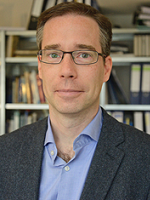 Andrew Gloster, Ph.D.
Andrew Gloster, Ph.D.
University of Basel (Switzerland)
I am currently a research scientist at the University of Basel in Switzerland, where I research several aspects of CBS that include epidemiological/public health approaches, technology enhanced assessment and treatment, and randomized controlled trials. I offer regular workshops, seminars, and supervision in ACT and have been an active member of both ACBS and the German-speaking Chapter. Together with my lab and collaborators, I have published numerous publications as well as created and translated various instruments relevant for ACBS. I am a licensed psychotherapist and a passionate mentor.
Statement: ACBS is my intellectual and professional home. Born and trained in the U.S.A., I have worked at German and Swiss universities since 2006. My work concentrates on ACT/RFT in my research, training, supervision, and therapy. Proudly, I have trained hundreds of students and professionals in ACT, while supporting some of the first studies in German speaking countries. I have served on the 1st German Chapter board, ACBS program committees, and am the Program Chair for this year’s conference in Berlin. I want to continue giving back to an organization that has given me much personally and professionally. As secretary/ treasurer, I would capitalize on my experience of running multi-site studies – including their finances – and of already working closely with our executive director (Emily). If elected, I will contribute my international perspective and experiences to help deal with the challenges/ develop the opportunities that face ACBS.
Member at Large 1
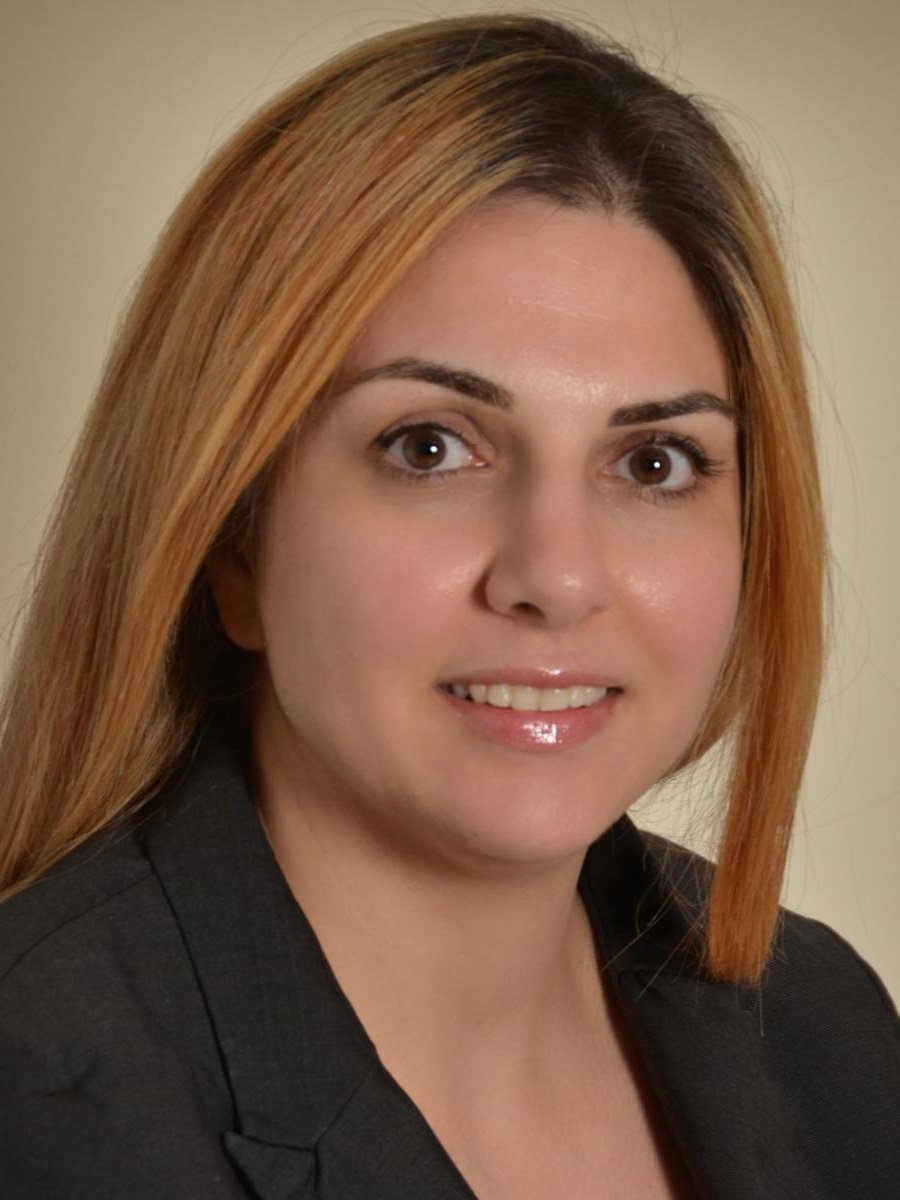 Maria Karekla, Ph.D.
Maria Karekla, Ph.D.
University of Cyprus (Cyprus)
Maria is a licensed Clinical Psychologist (works part time at the Center for Cognitive Behavioral Psychology), an Assistant Professor at the University of Cyprus and a peer-reviewed Acceptance and Commitment Therapy (ACT) trainer. At the University of Cyprus, she is heading the ACThealthy: Anxiety Disorders and Behavioral Medicine Clinical Psychology Laboratory. She completed her doctorate in Clinical psychology from the University at Albany, State University of New York and her residency at the University of Mississippi Medical Center, Jackson, MS. She has received numerous local and European grants to fund her research in the areas of anxiety disorders, smoking and smoking cessation, asthma, diabetes, cancer and thalassemia and in the evaluation of Acceptance and Commitment Therapy for various conditions. Her research on prevention and smoking cessation among high-risk adolescents in Cyprus provided her with a European Drug Prevention Prize in 2010 from the Pompidou group and the European Council.
Statement: Ancient Greek philosophers were among the first to speculate about human nature. Epicurean Philosophers for example noted the therapeutic nature of values and believed that we should abandon our restraints and live in the moment. Expanding on my ancestor’s ideas, I have tried to further the field of contextual behavioral science in my country as well as the region around me. I have been a part of ACBS almost from its inception and I have tried to serve the association through various capacities: serving on conference committees, on the board of various SIGs, becoming an ACT trainer, and starting the Cyprus-Greece ACBS chapter. I believe my experiences, my drive for research training and helping all those in need, and my love for this association and group of individuals will help serve this association with a continued fervor towards excellence in all aspects; research, practice, training, and human development in general.
Member at Large 2 (basic science)
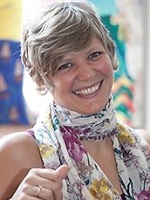 Emily K. Sandoz
Emily K. Sandoz
University of Louisiana at Lafayette (USA)
Dr. Emily K. Sandoz is the Emma Louise LeBlanc Burguieres/BORSF Endowed Professor of Social Sciences in the Psychology Department at the University of Louisiana at Lafayette. Emily is the Director of the Louisiana Contextual Science Research Group and Editor of the Journal of Contextual Behavioral Science. She has co-authored three books on acceptance and commitment therapy for struggles with eating and body image, along with chapters and journal articles on ACT, values, the therapeutic relationship, and psychological flexibility. Emily has led more than 40 professional training workshops around the world, and serves as a peer-reviewed ACT trainer. She also practices as a Clinical Psychologist in Lafayette, Louisiana, where she lives with her husband and three children.
Statement: I love karaoke. The thing that gets me is that Everybody sings. Not everyone gets in front of the crowd and pours their heart out. But everybody does sing. Something about being surrounded by familiar music and a chorus of unfamiliar voices opens folks up to find their own voice - even if it's a voice only heard if you look into their eyes. I've bet a chunk of my life on the idea that ACBS can be like that, providing a place where we can come together in different roles, from different corners of the world, acknowledging our universal struggle, finding where our own voices fit and matter. My hope is that, if elected to serve, I might have the opportunity to celebrate the variability and the harmony in our voices, especially the ones without much space or practice. I want ACBS to be a place where everybody sings.
Member at Large 3 (basic science)
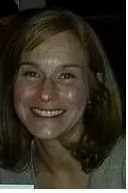 Amy Murrell, Ph.D.
Amy Murrell, Ph.D.
University of North Texas (USA)
I earned my Ph.D. in clinical psychology from the University of Mississippi in 2005, under Kelly Wilson's mentorship. I started working at the University of North Texas, where I am now a clinician and an Associate Professor, that same year. I have been a member of ACBS since its beginning, and I have run a CBS consistent lab for over 10 years. I have received 4 grants to research RFT and ACT. I have graduated 18 Ph.D. students, all of whom have gone on to contribute to ACBS. I am an ACBS Fellow and a Peer-Reviewed ACT Trainer. I have conducted over 50 RFT and ACT workshops and authored approximately 30 peer-reviewed manuscripts on RFT and ACT in addition to coauthoring The Joy of Parenting and several other manuscripts.
Statement: I am passionate about bidirectionally informed research and application. I believe that basic science and practice continually shape each other in ongoing, important ways and that communication about the two services cannot be truly separated. I think we do a disservice to those we attempt to reach when we make efforts to divide research and application, yet I think we are not doing enough to share basic research in accessible ways or disseminate applications in diverse settings. I want to work with the Board and various ACBS committees (as well as ACBS membership as a whole) to share more evidenced-based protocols that bridge the gap between basic science and application in diverse ACBS settings (not just ACT clinical work), and I am committed to increase aware of CBS related basic-applied topics outside of ACBS as well.
Member at Large 4
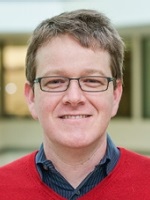 Jonathan Bricker, Ph.D.
Jonathan Bricker, Ph.D.
Fred Hutchinson Cancer Research Center & University of Washington (USA)
I learned behavioral theory and therapies, and the science of conducting inclusive research at the University of Washington clinical psychology doctoral program. After graduating in 2003, I joined the faculty of Seattle's Fred Hutch Cancer Research Center. I am Full Member and Affiliate Professor of psychology at University of Washington. I lead a multidisciplinary and diverse team focused on testing ACT for stopping smoking—a behavior that disproportionality affects the underserved. With $15 million US dollars in funding, we are conducting the largest studies of ACT. I have a private practice devoted to ACT. I am the president of the Washington State ACBS, a member of the Technology SIG, and was a member of the ACBS 2016 conference planning committee. In 2014, I became an ACBS Fellow. I serve on the diversity leadership committee at Fred Hutch.
Statement: I love ACBS. An active member since 2007, my first conference experience was parasailing over Clear Lake in Houston TX. Over the years, I have become passionate about three inter-related initiatives. The first is to make CBS science more accessible and relevant to our expanding worldwide membership. The second initiative is to give CBS away by communicating CBS theories, concepts, and techniques to the general public--similar to what I did with my TEDx talk "The Secret to Self-Control." The third is to promote CBS-based interventions delivered through mobile technologies (e.g., apps), as they can help overcome enormous disparities in access to effective behavioral care. The essence of these initiatives is inclusion: tools to empower all ACBS members to tell their story and share their knowledge--to each other, to their patients, and to the public.
The ACBS bylaws say:
The officers of the Association shall consist of a President, President-Elect, Past-President, Secretary-Treasurer, a student representative, and four Members-at-Large of the Board of Directors. Each shall perform the usual duties of the respective office and specific duties provided elsewhere in these Bylaws or as assigned by the Board of Directors. Elections for officers shall be held every year. The President, President-Elect, Past-President, and student representative shall each serve a one-year term and may not hold any other offices within the Association. The Members-at-Large shall be elected every two years. In each two-year cycle one of the Members-at-Large shall have a strong background and interest in basic science relevant to the purposes of the Association. The Secretary-Treasurer shall serve a three year term.
